
设计单位 Philippe SAMYN and PARTNERS sprl, architects & engineers.
项目地点 比利时那穆尔
建筑面积 5959平方米
建成时间 2019
项目位于那穆尔的中心,桑布尔河的北岸,面对着“Le Grognon”历史中心区。原建筑由维克多·布尔乔亚设计,建于20世纪60年代初,需要进行翻新和扩建以满足当地居民的现有需求,并适应Bouchers街和桑布尔河河岸的重新开发。
This cultural centre sits in the centre of Namur, on the north bank of the Sambre River, facing the historic centre of the town known as “Le Grognon”. Designed by Victor Bourgeois and built at the start of the 1960s, the building required renovation and extension to meet the current requirements of local people and to accommodate the redevelopment of the rue des Bouchers and the banks of the Sambre River.
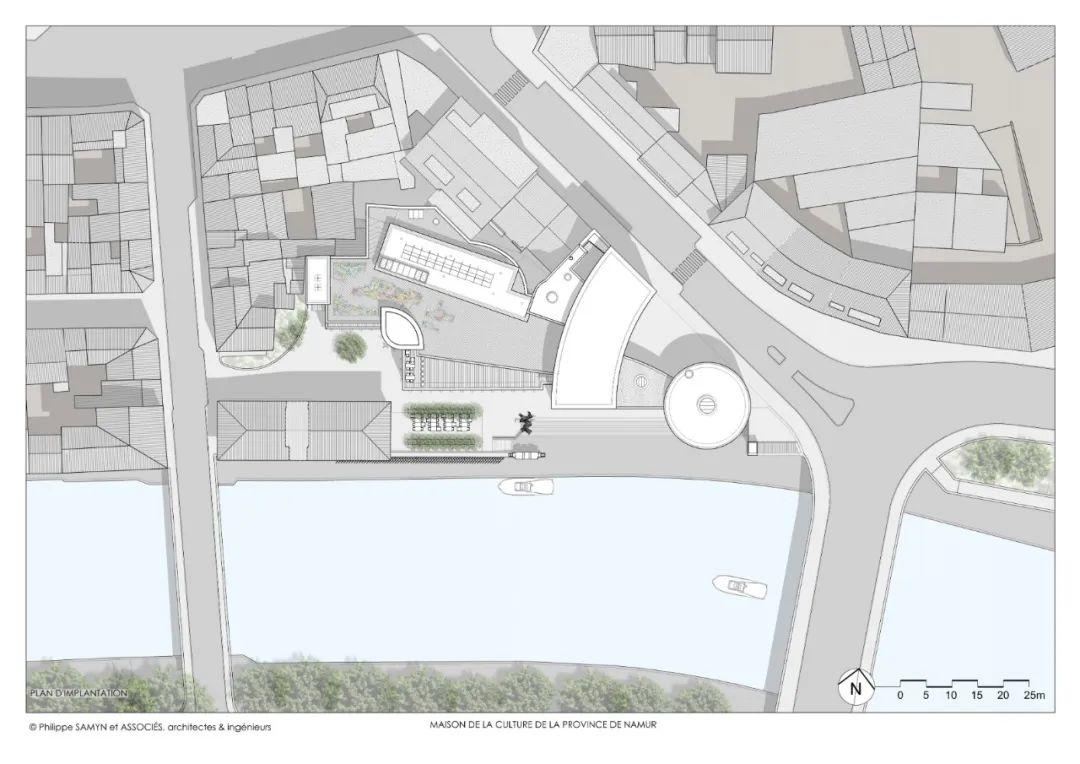
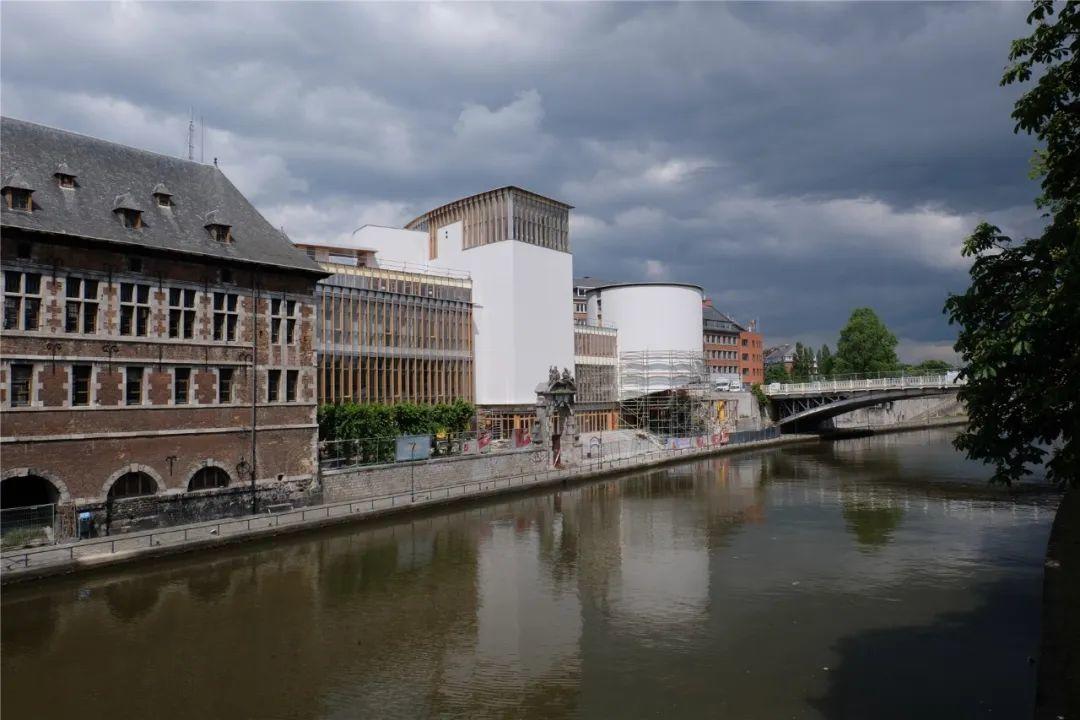
建筑改造
Renovation of the Building
原建筑的矩形端头处有一个高4层的剧院,剧院立面朝南,可俯瞰桑布尔河。另有一高5层的曲面矩形体量与之形成对比,被称为“羊角面包”。其东向与南向的立面没有开口。
The building used to consist of a 400-seater theatre at one end of a rectangular box-shaped space on four levels with a south-facing curtain wall (looking over the Sambre River) built up against a curved rectangular box-shaped space on five levels, known as the “croissant”, which has an east-facing curtain wall and a south-facing end wall which has no openings.
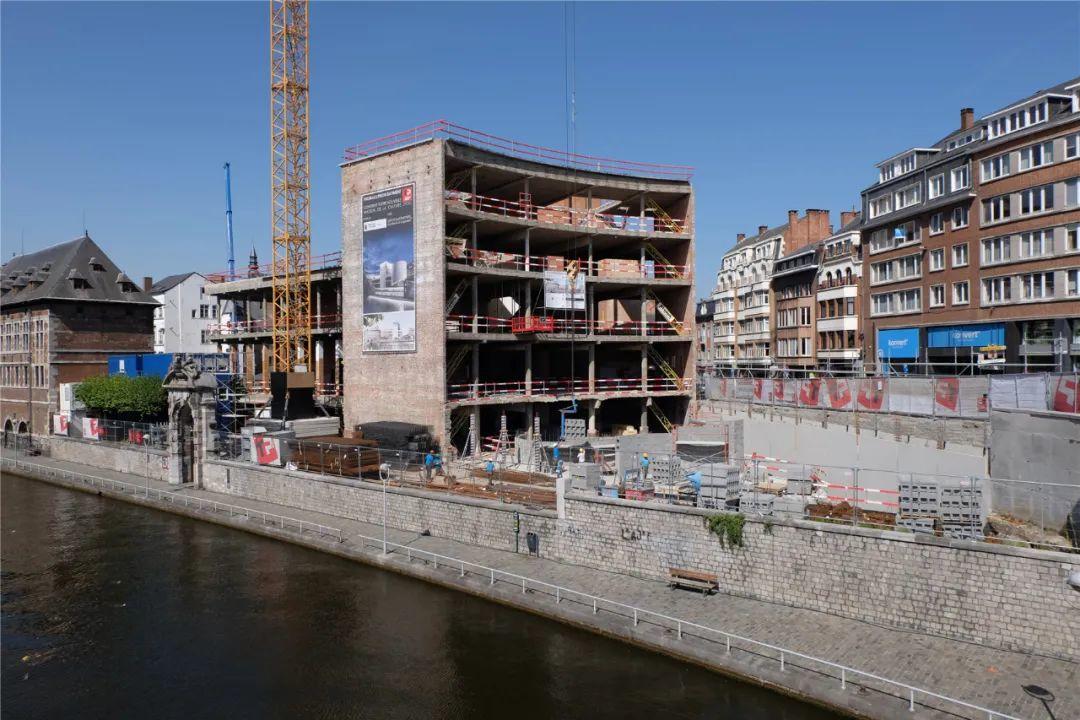
项目保留了原有的主要建筑。主剧院的门厅中添加了一个夹层,同时在“羊角面包”的顶部增加了一层,并进行了扩建,以适应所需的功能。
The project shall preserve the existing construction (with the exception of the small buildings annexed to the backstage area and at the site’s north-west corner). One intermediate mezzanine was added into the foyer of the 450-seater main theatre, as well as an additional level on top of the “croissant” (level 4), with extensions to accommodate the functionality required.
扩建部分包括“羊角面包”东面、由接待门廊组成的“船头”筒形体量,以及建筑在东北方向的延伸。所有的公共区域都可以从原有的主楼梯和新的服务电梯直接进入。
These additions shall include, to the east of the building in front of the “croissant”, the “prow cylinder” comprising the reception porch, and significant extensions to the north-east of the building. All the public areas can be accessed independently and directly from the existing main staircase and the new adjoining service lift.


场地与公共路径设计
The site and public access routes
从早上到晚上,阳光照亮建筑,盛行的西南风从Citadelle公园带来凉爽、新鲜的空气。阴影分析表明,该项目所产生的阴影对基地影响已是最小值。
Sunlight lights up the building from the morning through to the evening and the prevailing south-westerly winds bring cool, fresh air from Citadelle Park. The shadow analysis reveals that the project will have minimal impacts on the site.
建筑立面的干净线条使其获得最好的自然光和自然通风,且远离噪音和灰尘。建筑在噪音较大的Golenvaux大道和Bouchers街之间形成了屏障,进一步保证了阳光沐浴下的河畔环境。
The clean lines of its facades derive optimal benefit both from the natural light and the natural ventilation, free from noise and dust. The building also forms a screen between the noise of avenue Golenvaux and the rue des Bouchers, which further enhances this sun-bathed riverside environment.

建筑周围区域设计的重点是对行人、行动不便者、骑行者以及货物运输的流线优化。该项目将建筑的南向立面对Bouchers街具有吸引力。最西部设有用于运送重型货物的分散式入口。
The focus of the redevelopment of the areas surrounding the building is on optimising the flows of pedestrians, persons with reduced mobility, cyclists and the deliveries of goods. The project thus directs the appeal of the building’s south-facing facade to the rue des Bouchers, starting from the discrete access door for heavy goods deliveries at the courtyard at the most westerly point.
在Golenvaux大道上,位于建筑端部的新的圆柱状体量形成“船头”,成为建筑的焦点,吸引周围的行人与交通。从Brunell林荫大道上看去,这个圆柱体与维克多·布尔乔亚大楼的曲线相映生辉,给人以庄严感。
On avenue Golenvaux, the new cylindrical space sitting on a foot creates the “prow” of the building and produces a focus for the building and for traffic and pedestrian flows around it. When viewed from Boulevard Brunell, the cylinder sets off the curve of the Victor Bourgeois building which, with its raised elevation, now has a certain majesty.
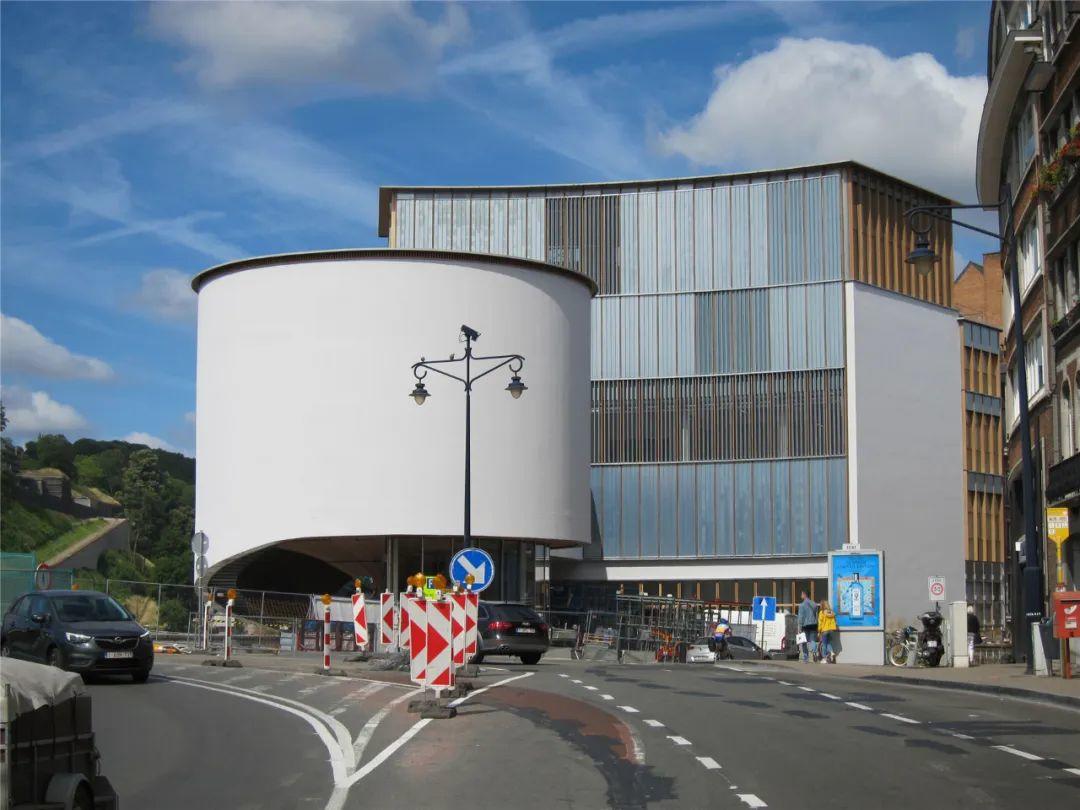
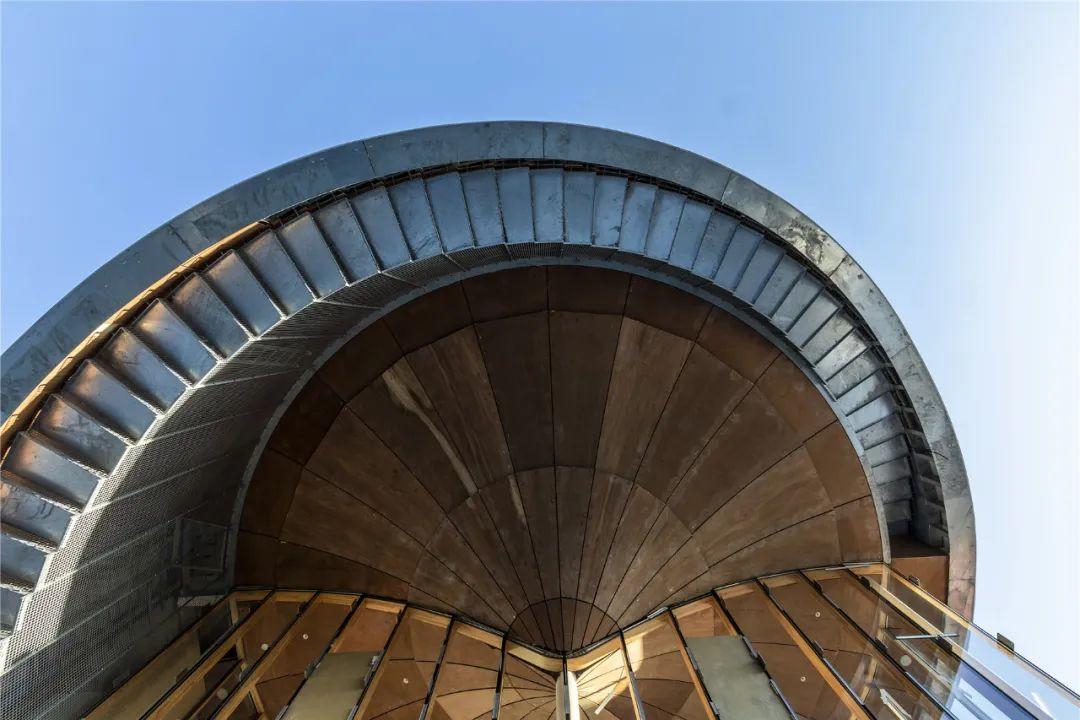
微环境
Micro Environment
虽然在良好的城市环境中完全可以依赖自然通风和照明,但城镇内部的环境条件(气味、噪音、灰尘、过热、阴影)已经逐渐明显恶化。建筑越来越多地是为了保护内部不受这种恶劣环境的侵害,它们变成了“盒子”,与这些物理伤害隔绝,与周围环境隔绝。
Although the reliance on natural ventilation and lighting is perfectly possible in a favourable urban environment, the environmental conditions within towns (odours, noise, dust, dirt on floors and walls, overheating, shading) has gradually and very visibly deteriorated. Buildings have increasingly been constructed so to protect them from this hostile environment, becoming “boxes” sealed off from these physical attacks and, as a result, closed off from their surroundings.
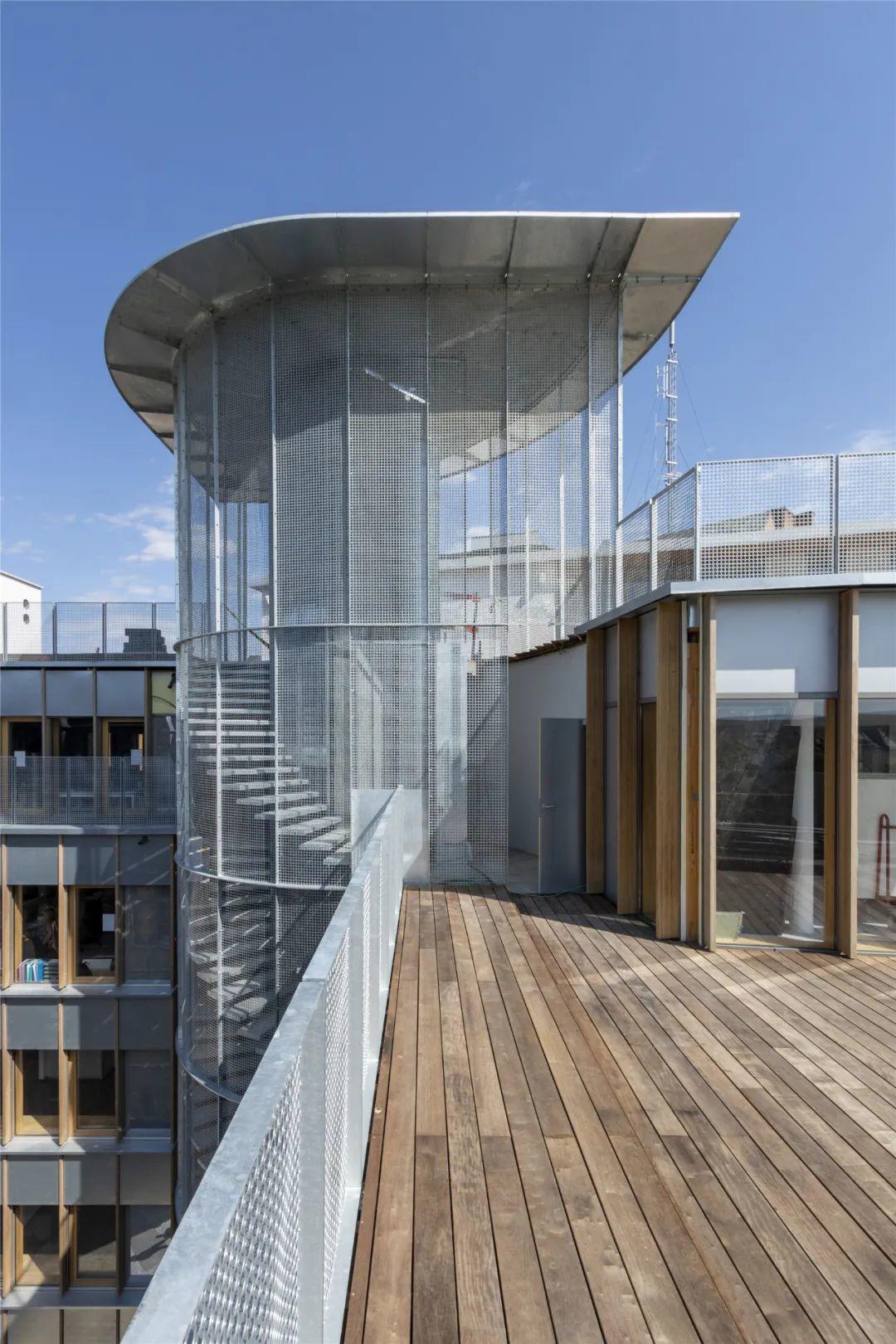
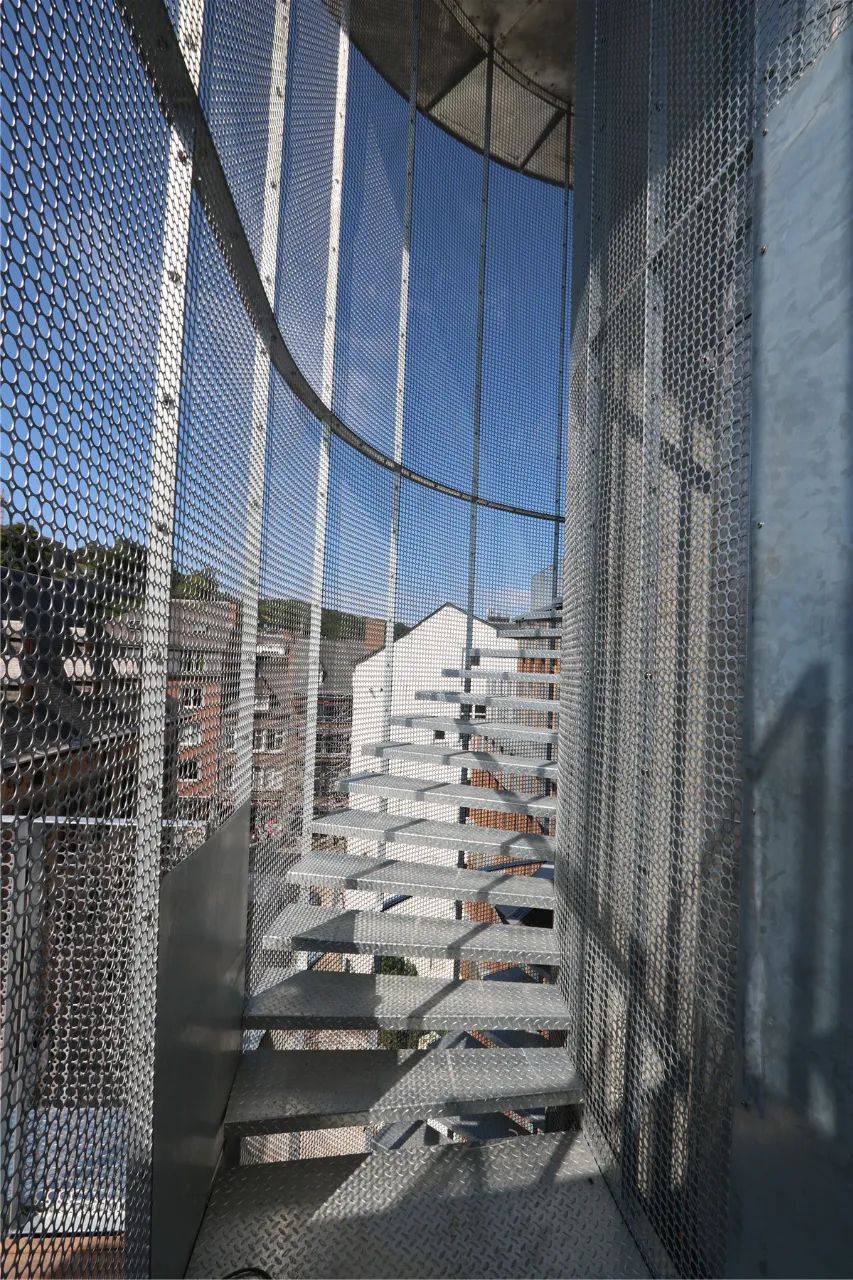
幸运的是,那穆尔文化之家没有这些不利条件。由于其地形和河流环境,建筑有良好的通风,因此有可能回归到更明智的做法,使建筑向环境开放。由于不受噪声的影响,主剧场的屋顶可以开窗,以获得自然通风和采光。
The centre of Namur, which is well ventilated due to its topography and rivers, is fortunate in that it does not suffer from these disadvantages. It is thus possible to return to more sensible practices, and to open up the building to its environment. Since they are sheltered from sources of noise, the main 450-seaters theatre rooflights, necessary for both smoke exhaust and natural daylight, can also be used for natural ventilation, along with opening windows.
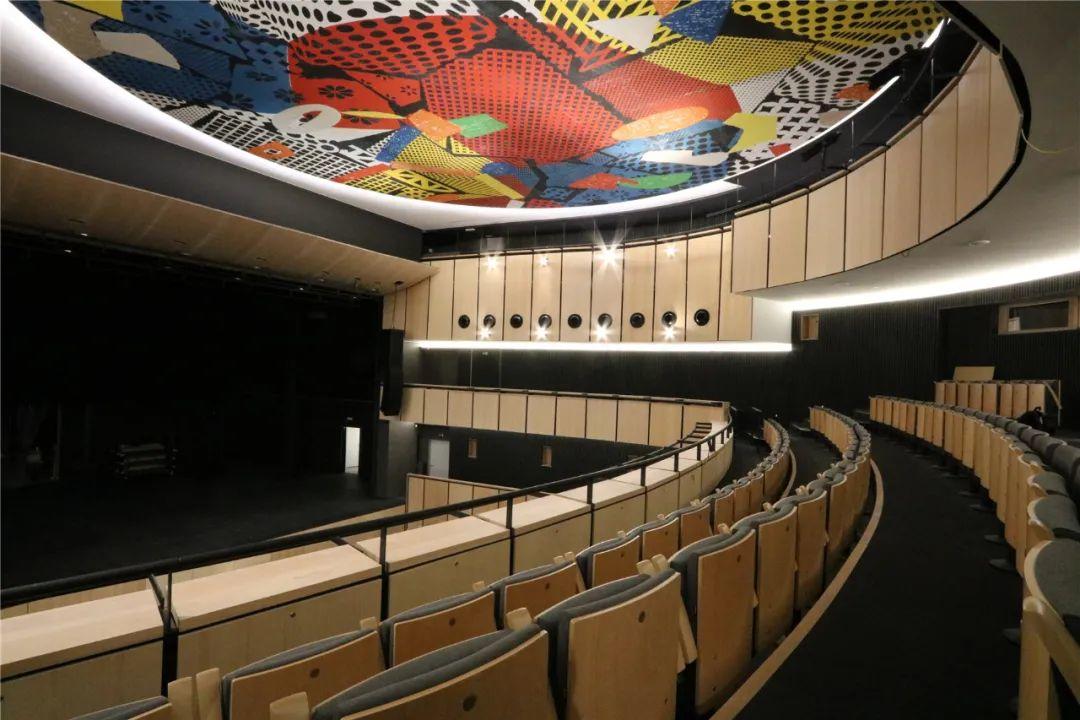

安装在立面上的垂直遮光栅格和百叶窗,可调整通过立面的自然光照量,并提供遮阳。采光井为三个剧场的舞台提供自然照明。
Louvres fitted vertically on east, and horizontal blinds on other orientations, are used to adjust the degree of natural illumination through the facades, and to provide shading. Light wells shall provide natural illumination for the stages in the three theatres.
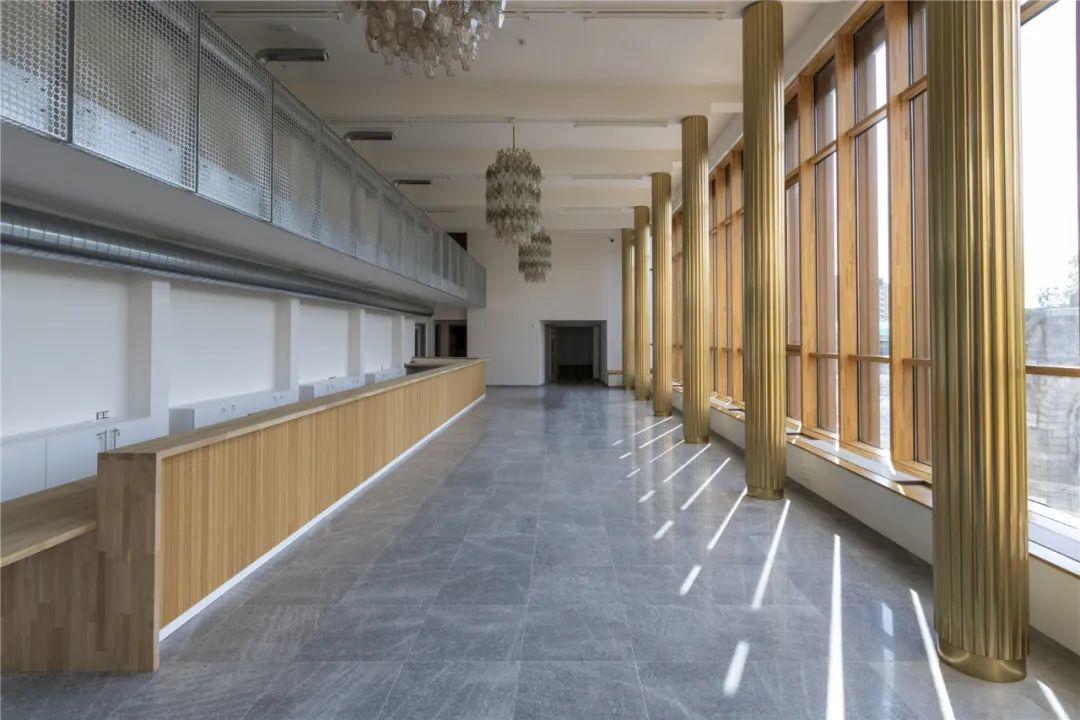
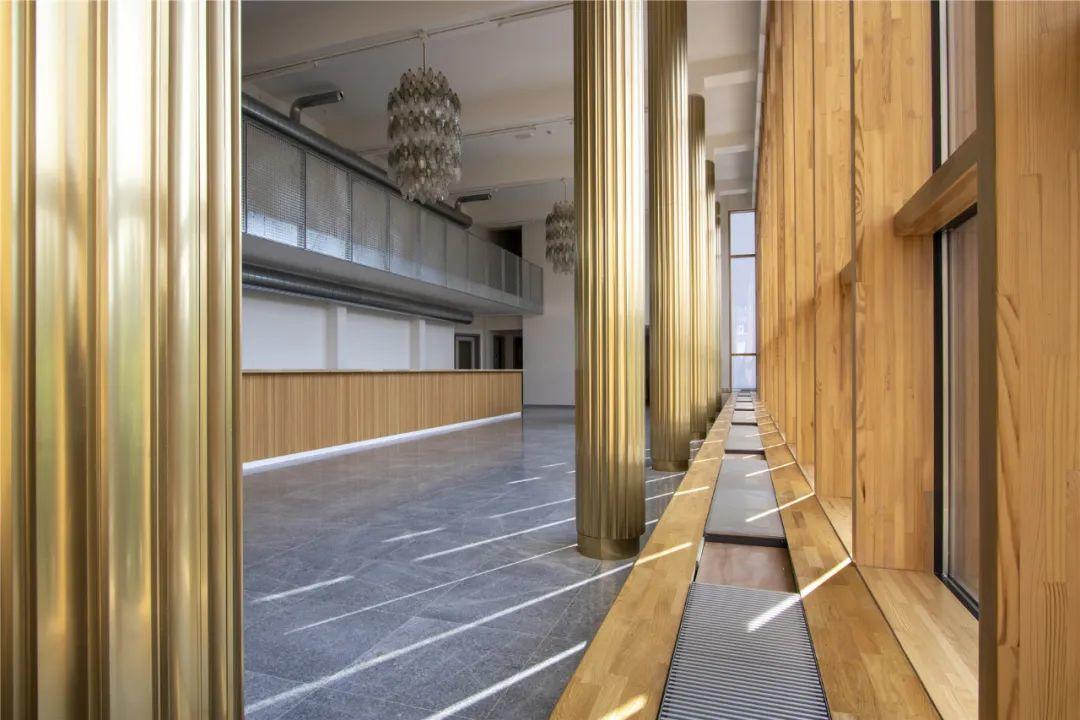
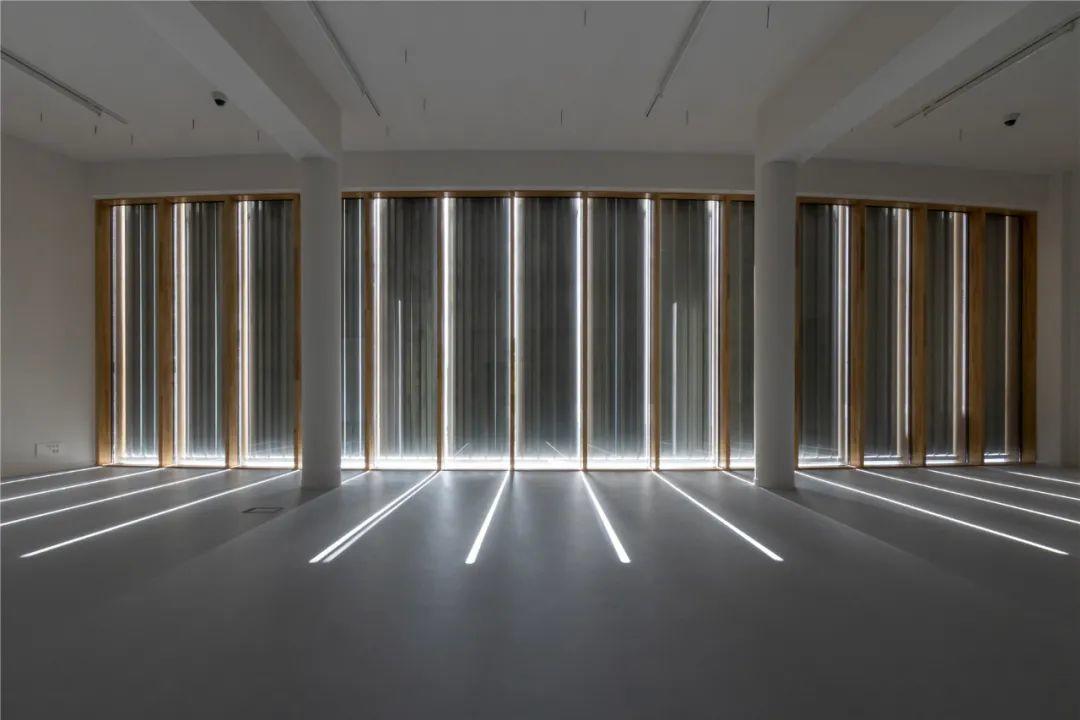

名为Cenaero的航空仿真技术将GIS和计算流体动力学仿真工具结合起来,并结合项目的3D建模来研究建筑内部和周围的微气候。研究结果证实了以下建筑性能:
Cenaero combined GIS (Geographic Information Systems) with CFD (Computational Fluid Dynamics) simulation tools and with a 3D modelling of the project to study the microclimates in and around the building. The findings of the study confirmed that it was possible:
1) 在大部分时间里,建筑物依靠自然通风,
1) to rely, for much of the time, on natural ventilation for the buildings,
2) 可保证建筑物入口附近和Bouchers街区域的气候舒适性。
2) to be confident regarding the comfort of the climatic conditions in areas around the entrances to the building and on the rue des Bouchers.
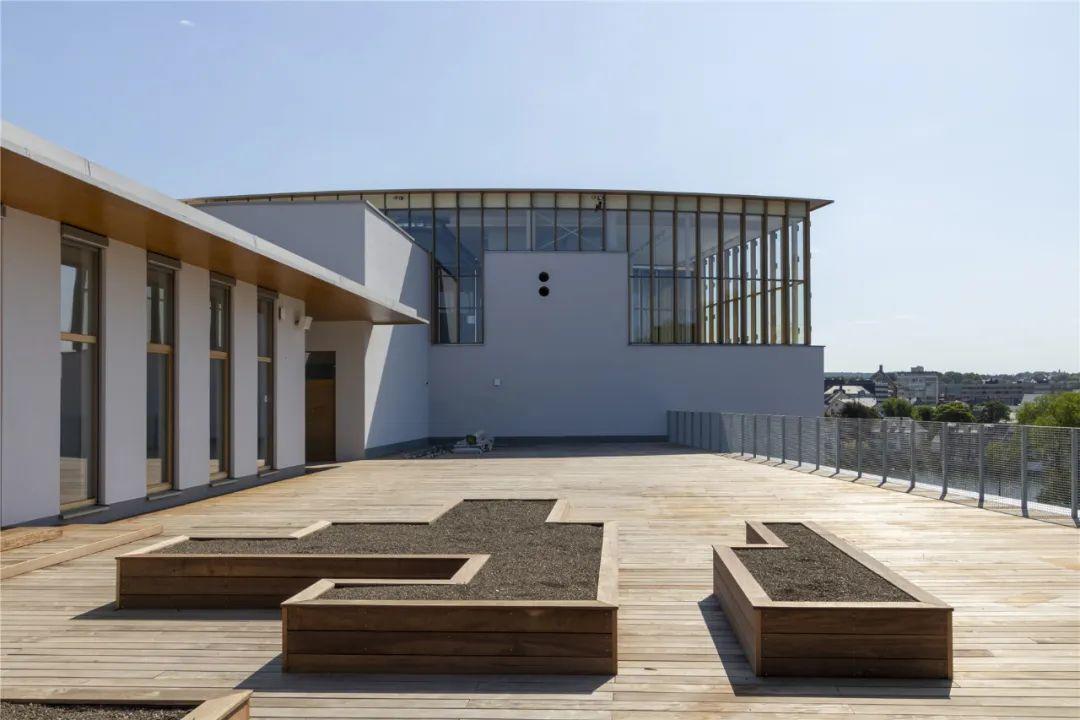
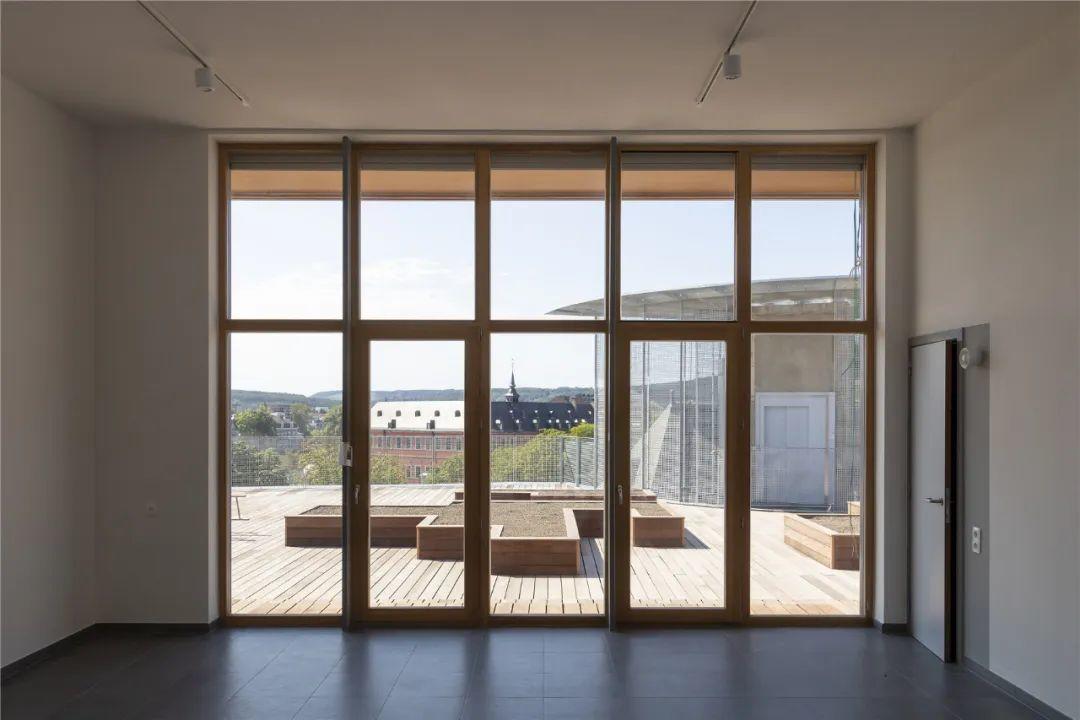
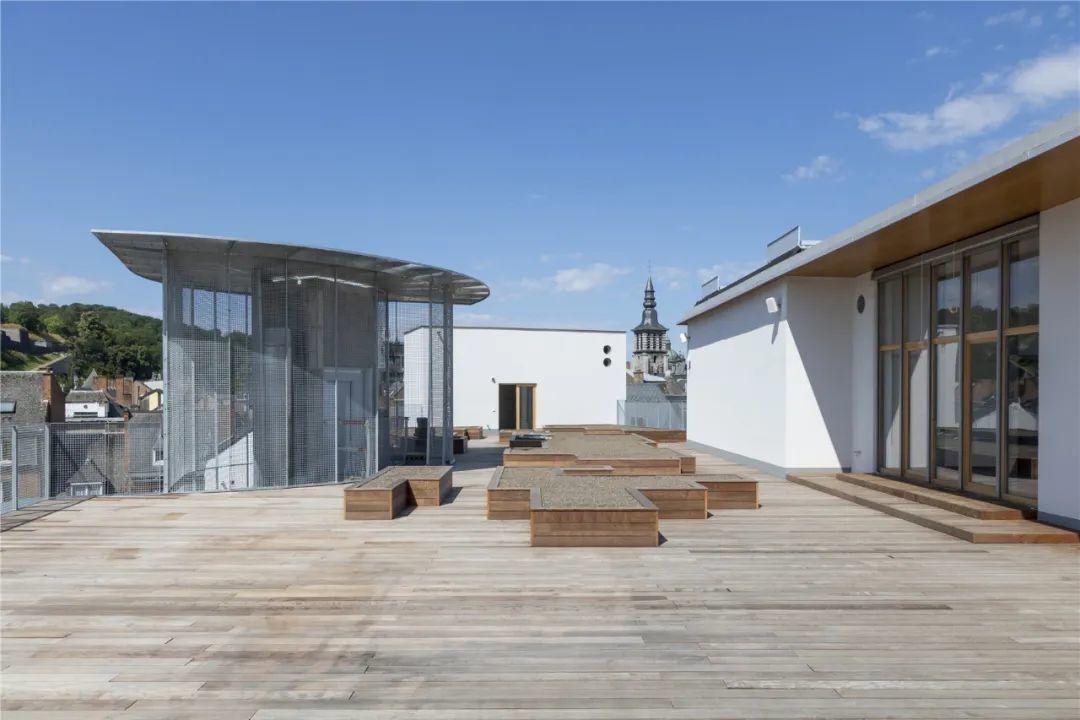
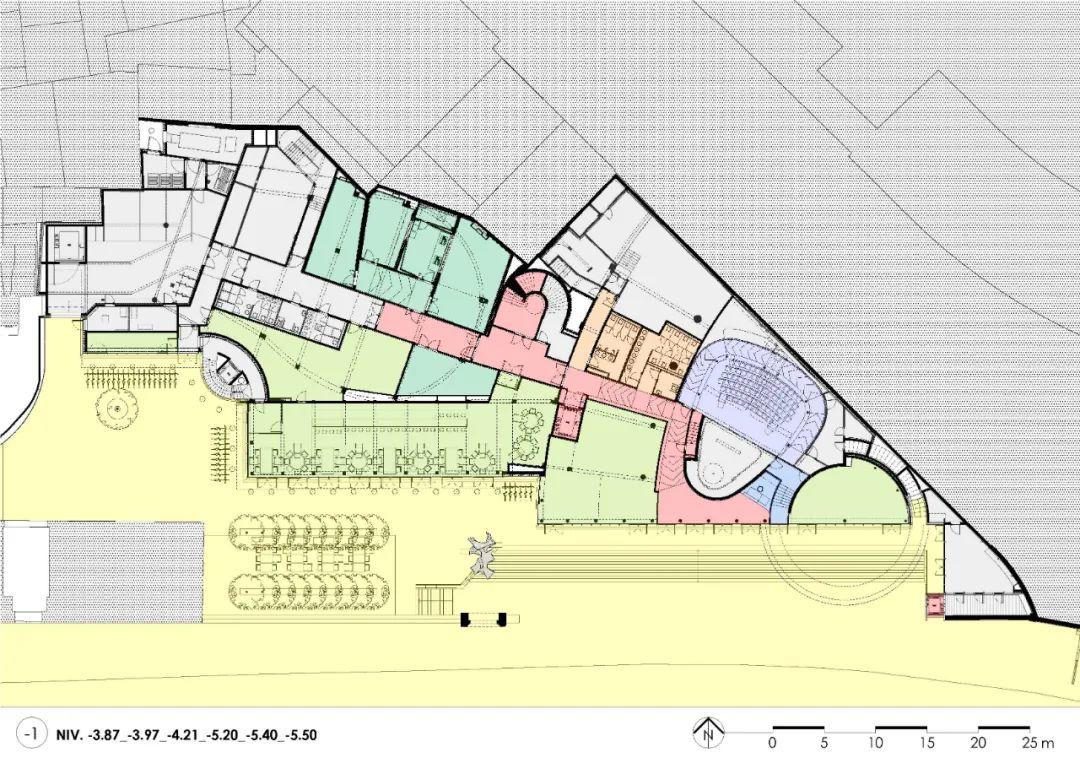


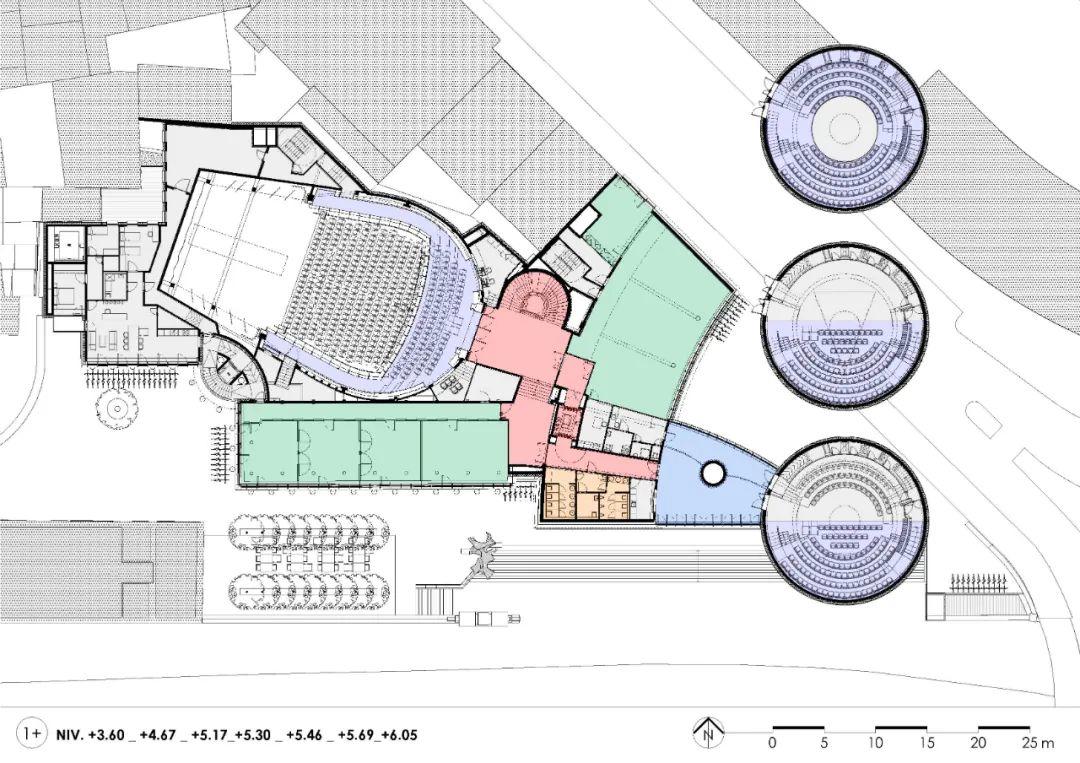
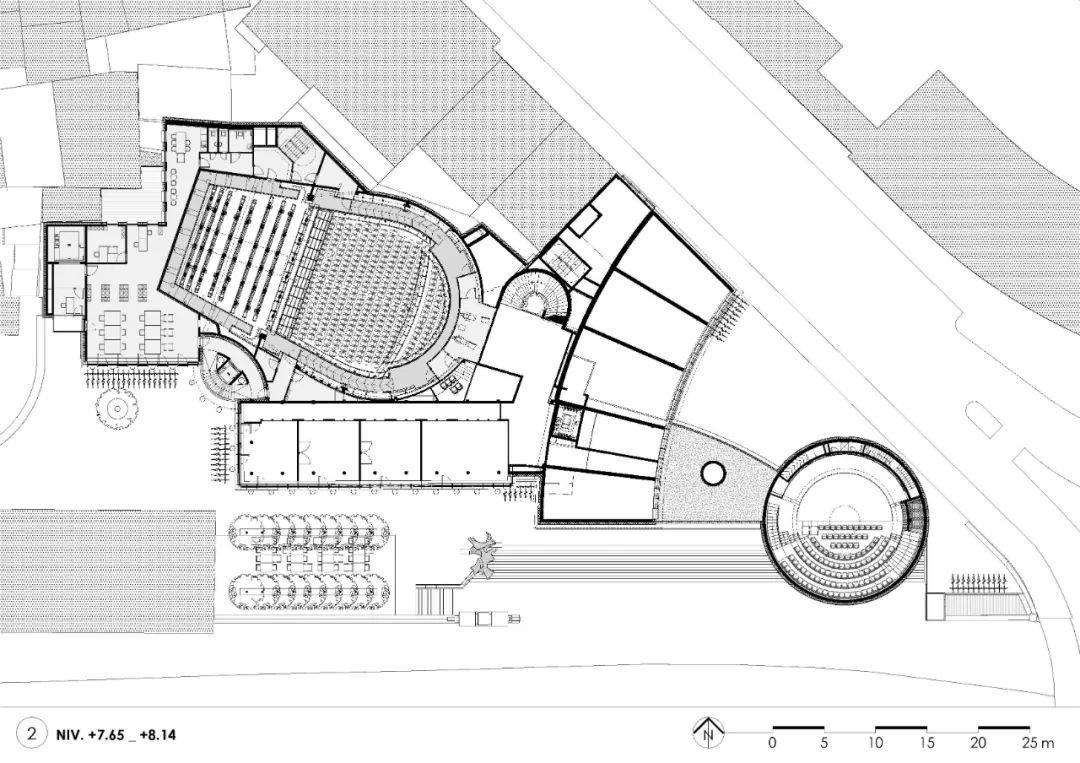

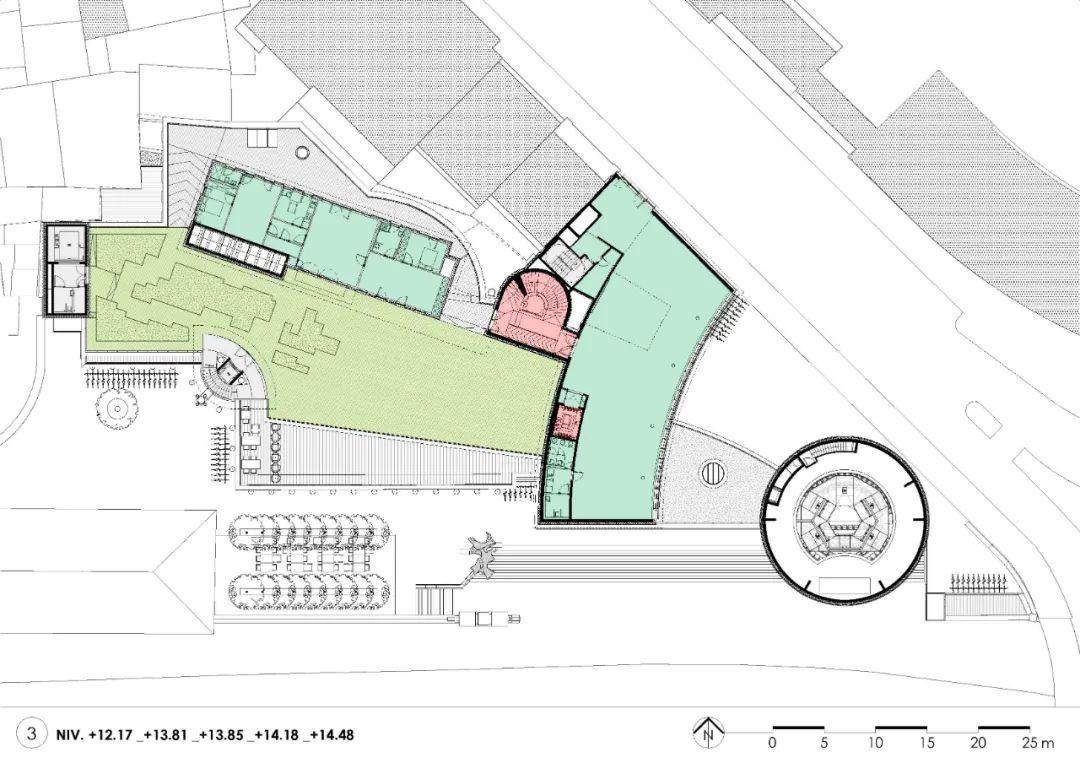
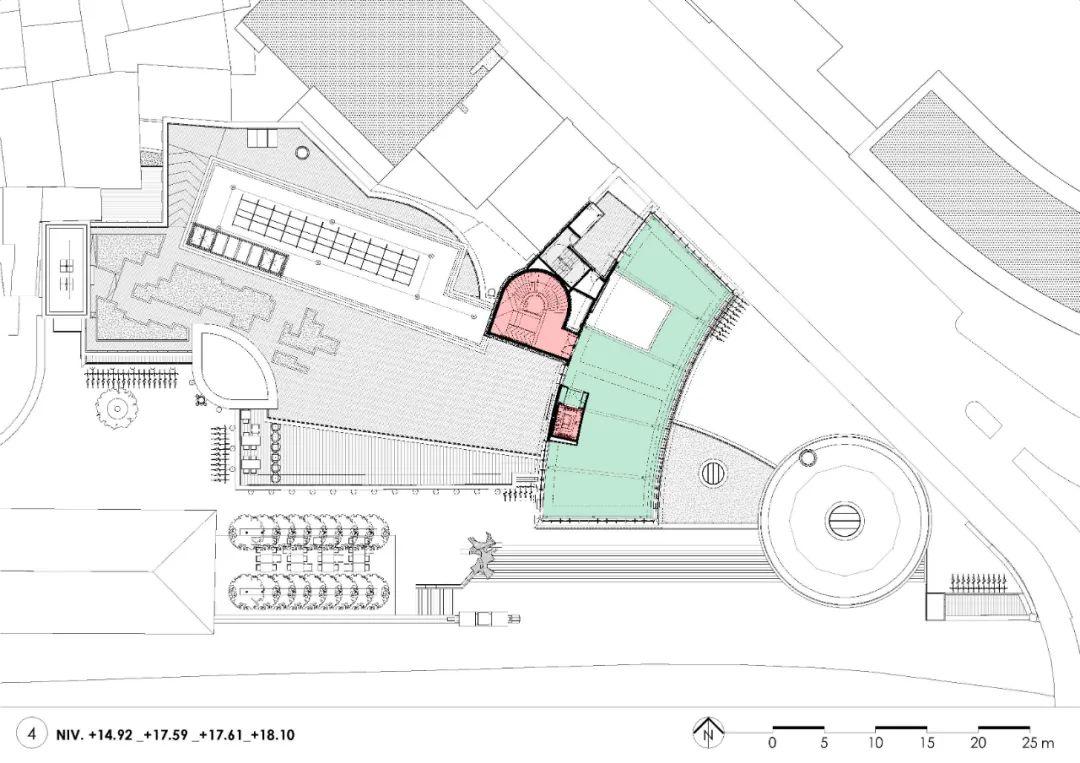


完整项目信息
LOCATION: Avenue Golenvaux, 5000 Namur, Belgium
SURFACE and DATA: Gross area: 5959 sqm
CLIENT: Province de Namur
ARCHITECTS & ENGINEERS: Philippe SAMYN and PARTNERS sprl, architects & engineers (SAI)Philippe SAMYN
Design Partner: Dr Ir Philippe Samyn
Administrative Partner: Ghislain André
Principal architect: Giuseppe Cardillo
Collaborators: (more than 80 hours) Adrian Anghel, Karim Ammor, , Guido Bruzzi, Pierre Carteni, Louis Chaumont, Gilles Demol, Silvia Figoli, Olivier Gennart, Cristina Ibanez Moreno, Roser Igual, Alexandra Ionesi, Ali Laghrari, Aimeric Mavillaz, Ana Miralles Barreda, Mara Parfenovica, Daniel Perez Justel, Vlad Popa, Alexio Rava, Radu Somfelean, Gülin Yazicioglu.
Stuctural engineering: SAI with MC-carré sprl, Gaëtan Cordi
Building services engineering / PEB: SAI with SIX Consulting & Engineering s.a. / DTS & CO s.a.
Scenography: dUCKS scéno, Melissa Ribeiro and Pierre Jaubert de Beaujeu
Acoustics: Altia, Richard Denayrou
Museography (competition): François Mairesse
Urban design / Landscape (competition): Agora, Serge Peeters
BREEAM: SECO, Technical Control Office for Construction, Etienne Guiot
Outdoor lighting advisor (competition): Magic Monkey sprl/bvba, Marc Largent
Health and safety coordination: SIXCO
Accessibility for disabled
Persons: asbl PLAIN-PIED, Julie Vanhalewyn
Guest artist: Yves Zurstrassen
Signposting: sdesign sprl, François-Joseph de Lantsheere
Environmental studies (competition): Daidalos Peutz bouwfysisch ingenieursbureau bvba, Filip Descamps
Microclimates studies: Cenaero, Cécile Goffaux, Sébastien Pecceu
Kitchen advisor (competition): FBO Freddy Oushoorn
Historic advisor (competition): Philippe Bragard
Advisor for his own work: Félix Roulin
Additional renderings: ASYMETRIE sprl, Xavier Vanabelle, Michaël Barrin
Model (competition): AMA, Atelier de Maquettes d’Architecture, Francis Van Hoye
Pictures of the model (competition): KOLORSPROD, Alexander von Buxhoeveden
DOCUMENTATION
Documentation management: Philippe SAMYN and PARTNERS (André CHARON and Quentin OLBRECHTS)
PROJECT TIMELINE
Beginning of the projetct 2015-07.
Beginning of the works 2016-09-01.
Acceptance of the building 2019-09-05.
本文由Philippe SAMYN and PARTNERS sprl, architects & engineers.授权有方发布,欢迎转发,禁止以有方编辑版本转载。
上一篇:UNStudio公布韩国国家足球中心方案:兼顾体育、健康、科技和教育
下一篇:科普视频 | 代尔夫特理工大学里有一座消失的图书馆